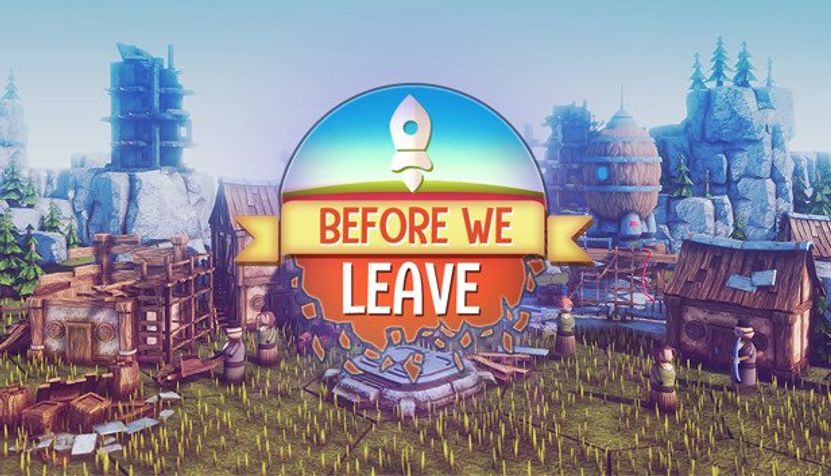Before We Leave
I’ve mentioned in most of my reviews that the game I’m reviewing is “not my genre.” I’m sure there’s a grand overall statement to be made about why so many games are not games I’m particularly good at - such as that I buy a lot of bundles - but the grander point is that when I do come to a game that is “my genre,” it shines a little brighter because I’d waited so long to come to it.
I love city builders very much, and Before We Leave is very much a city builder. I enjoy the process of slowly building up, and being able to point to what I built at the end and say “I made that. Look how gloriously functional it is. Admire the efficiency. Behold its self-sufficiency.” I’m a sucker for city planning and logistics games.
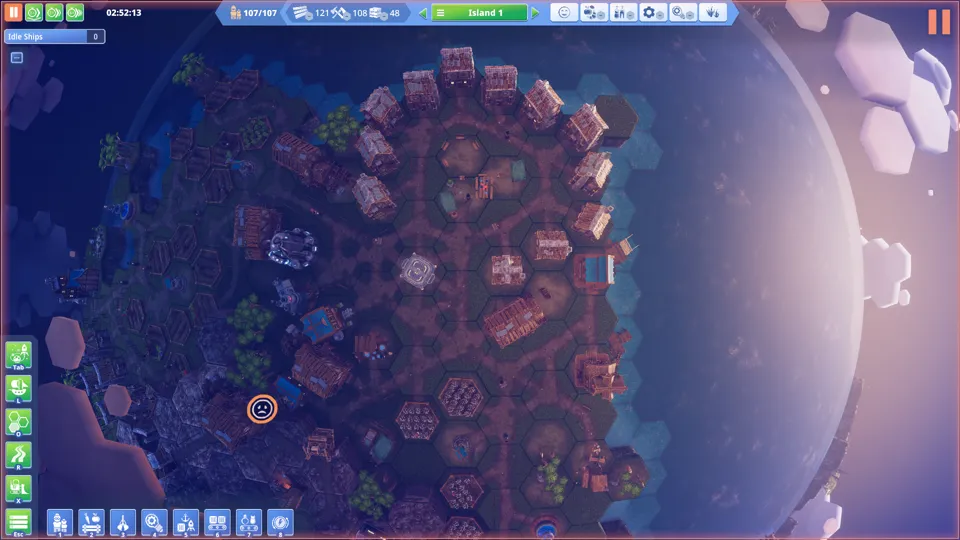 We’ve even got a smoothie bar!
We’ve even got a smoothie bar!
But I once again emphasise that this isn’t the place to say a game is good or bad based on whether I liked it. Before We Leave is a city builder with a couple of twists. It takes place in a post-apocalyptic world, where the survivors of the apocalypse emerge from their underground bunkers to rebuild their planet. It starts small (“build a village”!”), grows (“colonise a new island!”), and expands (“space, space, gotta go to space!”). Throughout, the player has to be aware of pollution, space efficiency, logistics, and of course, space whales.
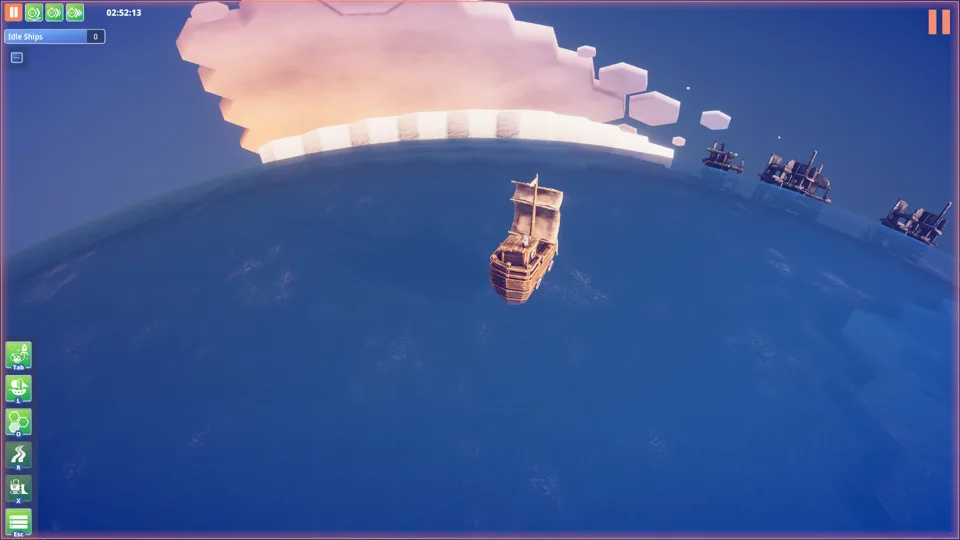 I’m mostly just here for those sexy, sexy shipping lanes.
I’m mostly just here for those sexy, sexy shipping lanes.
Before We Leave also has one more twist - it is nearly entirely non-violent. There are no other civilisations to attack, no competing cities. The only violence the player will encounter will be from the world itself, be it through monsters or the aforementioned space whale. This means the player can play at their own pace, building and growing without the impetus of outside pressure. It’s relaxing, especially with the wonderful artwork, world design, and music.
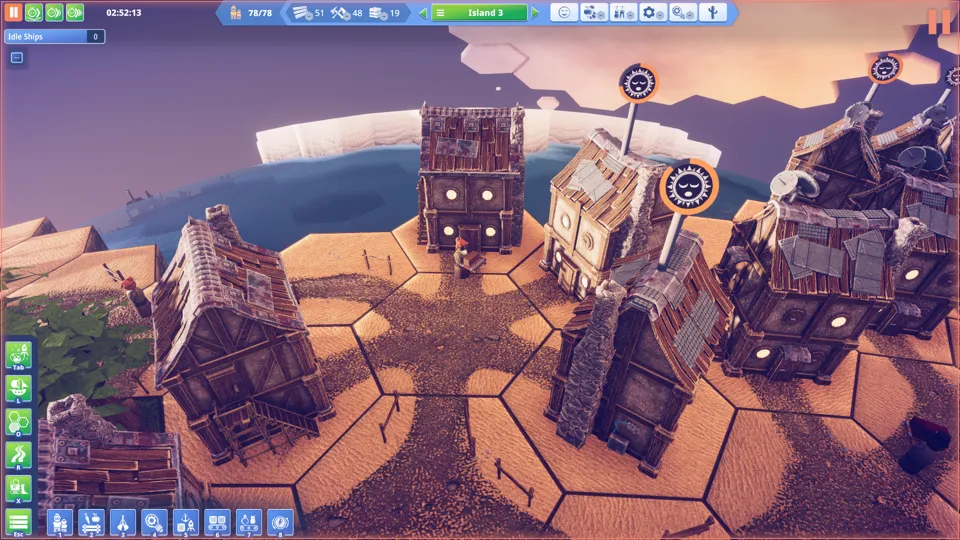 This lady had time to make a cake!
This lady had time to make a cake!
But that leads into one of the thoughts I had about the story Before We Leave is telling. Before We Leave does not tell you what the apocalypse was that drove its people into underground bunkers. It doesn’t honestly matter. When people come out, their concerns are around basic survival - food, water, shelter, toys - and pollution. Throughout, the game warns the player about pollution, emphasises its negative effects, its destructiveness, and how to mitigate it. Pollution, once the city starts industrialising, is a constant concern. It’s not a bad mechanic. Being aware of the impact development has is a really good addition to any city builder, and I appreciate it. Where Before We Leave rings a little hollow, though, is that, despite the emphasis on the negatives of pollution, despite the hints that the apocalypse may have been related to development and expansion, the game pushes to expand and develop. The player does so at their own pace, of course, as quickly or as slowly as they’d like, but the drive to expand and grow is perpetual.
To be clear, this isn’t really the fault of Before We Leave specifically. All city builders are inherently “grow and expand” games, and by their nature, the player wants to build a bigger and better city. In a game like Cities: Skylines, this isn’t a problem - we know going in that we are playing a standard city in a standard world and all the trappings that come with it. When the world is post-apocalyptic, though, with strong reminders about pollution, there is always that question of whether the player is repeating the same mistakes of the past, whether the rusting hulks at the top of the mesa are just the previous world’s iron mines. Growing this village full of hopeful survivors who delight in forests and blue skies into an industrialised, space-faring society feels wrong. It feels almost like the player is acting against their city’s best interest. With no outside enemies, no reason to colonise and expand except for for its own sake, or to get the resources to continue expanding, I’m left asking the question - why should I expand? Why can’t my people be happy in their houses, playing fantastic music, enjoying their forests, and watching the waves roll in?
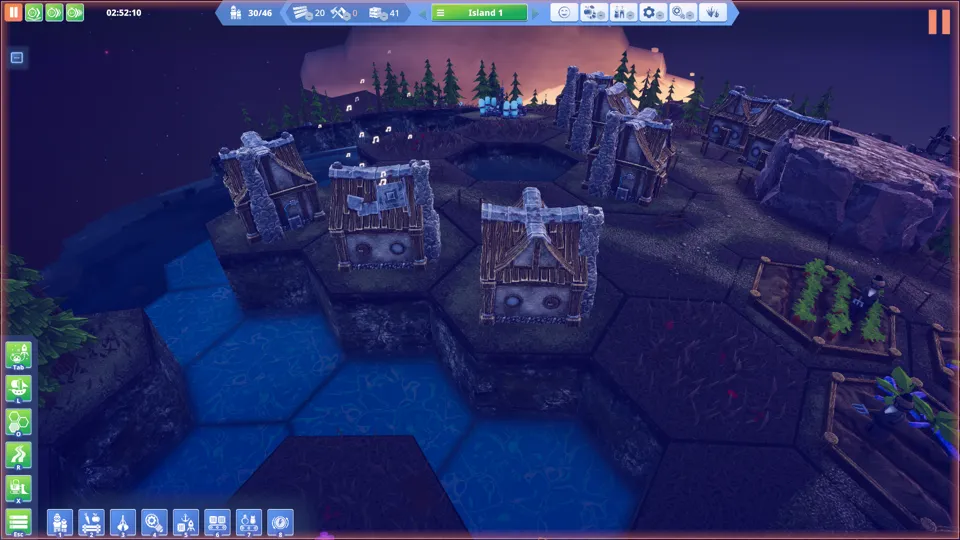 This person gets it.
This person gets it.
From a gameplay perspective, Before We Leave is fantastic, and I enjoyed its low pressure approach to city-building. It’s less of a simulation than Cities: Skylines, but less pressure than, say, Frostpunk. The art and music are fantastic, the ability to design a city is great, and it’s just a cute game of adventure, exploration, and logistics.
Once I thought about why I was building and what I was doing when I built, though, some of the sparkle wore off and hasn’t come back. When developing into space leads to your city being eaten by a space whale, it raises the question of why I went to space to begin with. When developing for development’s sake only serves to make life harder and less happy, why do it? Other games mask this fundamental conundrum a bit better than Before We Leave. It’s something inherent to any city builder, though, that question of whether in building and expanding, we actually make things worse for ourselves.
I don’t have an answer, but I appreciate that Before We Leave laid the contradiction bare. When I play it again, I think I’ll be happy to stay on my one island, gazing at the forests, happy by the sea.
Developer: Balancing Monkey Games
Genre: City Builder, Simulation
Year: 2020
Country: New Zealand
Language: English
Play Time: 10-15 Hours
